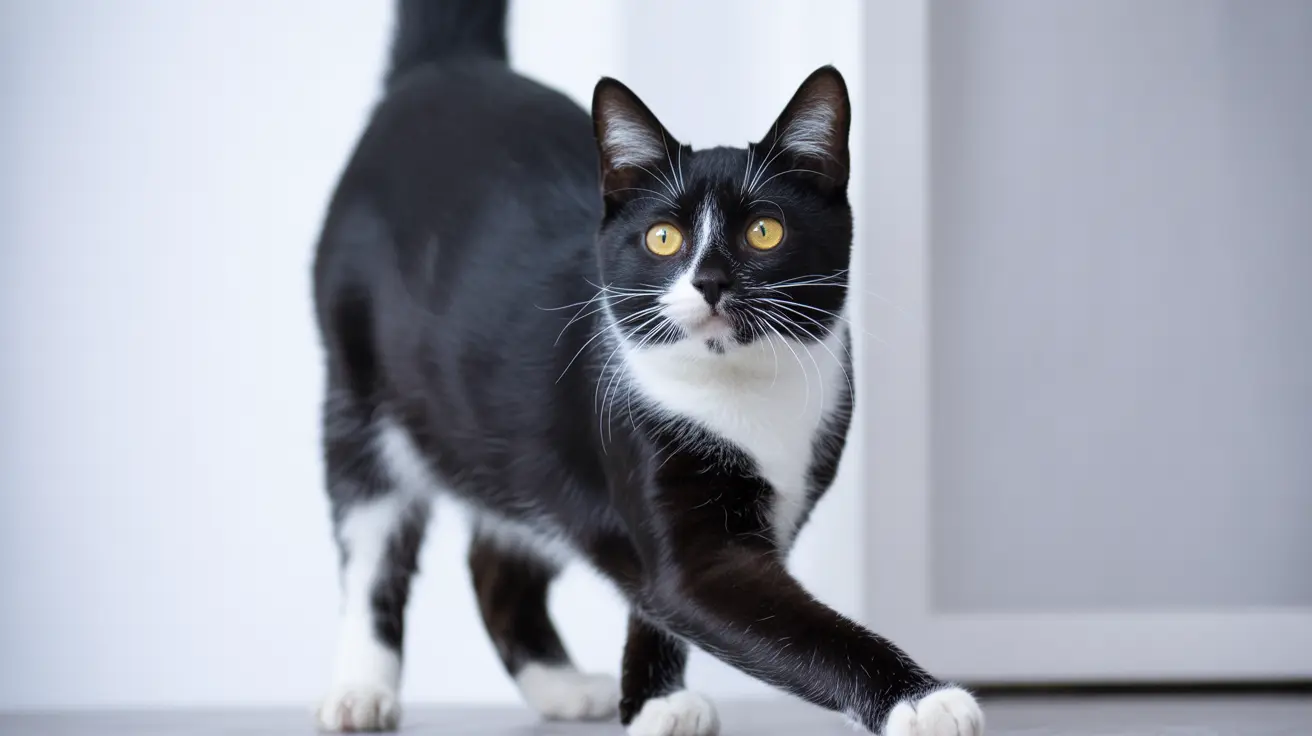The Science Behind Feline Perception
Cats possess highly developed senses that far exceed human capabilities. Their hearing can detect frequencies up to 64 kHz (compared to humans' 20 kHz), and their vision is specially adapted to detect subtle movements in low light conditions. These enhanced physical abilities contribute significantly to their seeming ability to sense negative energy.
Research has shown that cats can recognize human emotions through facial expressions and vocal tones. A groundbreaking study published in Animal Cognition demonstrated that cats can distinguish between their owners' happy and angry expressions, suggesting a sophisticated understanding of human emotional states.
How Cats Process Environmental Changes
What we perceive as cats sensing "bad energy" is often their response to subtle environmental cues that humans might miss. These include:
- Changes in human body language and posture
- Variations in voice pitch and volume
- Stress-related pheromones
- Shifts in routine or atmosphere
- Electromagnetic field variations
Physical and Behavioral Responses
When cats detect negative changes in their environment, they may exhibit several characteristic behaviors:
- Hiding or seeking elevated positions
- Excessive grooming or reduced grooming
- Changes in appetite or litter box habits
- Increased vocalization
- Defensive posturing or aggression
The Human-Cat Emotional Connection
Studies from the University of Kyoto have confirmed that cats form strong emotional bonds with their owners and can distinguish their voices from those of strangers. This deep connection enables cats to respond to their owners' emotional states with remarkable accuracy.
When humans experience stress, anxiety, or depression, their cats often display empathetic behaviors such as increased physical proximity and purring, which can have therapeutic effects on both parties.
Creating a Positive Energy Environment
To support your cat's emotional well-being and reduce their exposure to negative energy, consider these strategies:
- Maintain consistent daily routines
- Create quiet spaces for retreat
- Practice stress-reduction techniques
- Monitor your own emotional state
- Provide environmental enrichment
Frequently Asked Questions
Can cats really sense negative or bad energy in their environment?
While cats cannot detect supernatural forces, they are highly attuned to changes in their environment through their advanced senses. They can detect shifts in human behavior, body language, and even chemical changes associated with stress or anxiety.
How do cats respond to their owners' emotions like stress, anger, or anxiety?
Cats often respond to their owners' negative emotions by either becoming more attentive and offering comfort, or by displaying stress behaviors such as hiding, excessive grooming, or changes in appetite. Their response depends on their individual personality and relationship with their owner.
Is there scientific evidence that cats can detect supernatural or evil forces?
No scientific evidence supports cats' ability to detect supernatural or evil forces. Their seemingly mysterious behaviors can be explained through their sophisticated sensory abilities and natural instincts.
Why does my cat act nervous or stare at empty spaces when tensions rise in the house?
This behavior is likely due to cats picking up on subtle environmental changes, such as variations in human behavior, stress pheromones, or even changes in air pressure or electromagnetic fields. They may also be responding to sounds or movements that humans cannot detect.
How can I help my cat cope if they seem stressed by negative energy at home?
Provide your cat with safe spaces to retreat, maintain regular feeding and play schedules, and work to reduce household stress. If your cat shows persistent signs of stress, consult with a veterinarian to rule out any underlying health issues.
Remember, while cats may not truly sense "bad energy" in a supernatural sense, their remarkable ability to detect and respond to environmental and emotional changes makes them excellent companions who can help us become more aware of our own emotional states and the atmosphere in our homes.






